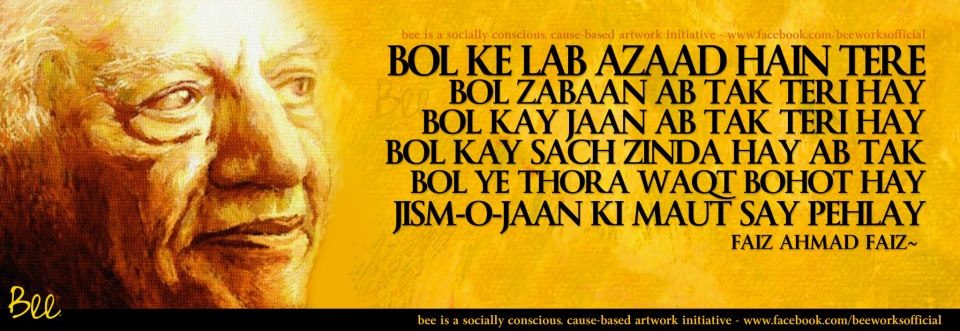The immediate impetus for today’s event came from the murder of the Minister for Minority Affairs and prominent Pakistani Christian, Shahbaz Bhatti. We wish to pay condolences to his family, and to that of the Governor of the Punjab Salman Taseer, and the many others who have become victims of religious terrorism – specially that linked to the Blasphemy Law.
Before we turn to our program, a couple of notes: First, our heartfelt sympathies go to the people of Japan who are suffering grievously from last week’s earthquake and tsunami, and now risk radiation.
Secondly, we extend our support to the people of Tunisia, Egypt, Libya, Saudi Arabia, Bahrain, Yemen etc. who seek national independence, genuine democracy, equality for all, the use of natural resources for people’s needs and a socially just economic order.
At the same time, we condemn efforts by imperialism to turn these events to its own advantage.
Those from Muslim backgrounds know that, historically, the Kaaba has been home to many idols and gods. For instance there were 365 – one for each day – at the time of the inception of Islam. The Saudi monarchs have been behaving as gods – for every day, for every year for the past seventy years.
We join the great Urdu poet – Faiz Ahmed Faiz – when he says:
Sub taj uchalay ja-aingay, Sub takkht giraaey ja-aingay
Arze khuda kay kaabey say, Sub but uthwaye jaingay;
Aur raaj karey gi khalqe khuda…
When the Soviet Union collapsed they told us that the end of history had arrived, class struggle was over, no change to the existing order was possible. In the Arab world, in Latin America, in Europe, closer to home in Wisconsin, people and workers are saying just the opposite – Another world is possible.
I would like to welcome everyone and thank all who offered their help with this event, especially Tariq Amin Khan who has booked this hall for us today.
A brief introduction of the Committee of Pakistani-Canadians is in order.
We started in 1981 – 1982 during the rule of General Zia to support the struggle for democracy; after many years of activity became dormant and have become active again for about the past three to four years.
While we try and keep ourselves informed, we are not a think tank which focuses on analyzing the situation in Pakistan and proposing solutions toactivists there. Rather, we are a working committee which does solidarity work with those Pakistani forces which stand:
*Against Military rule and for democracy
*For an independent foreign policy free of foreign domination and peaceful relations with neighbours
*Equality of all nations – political, cultural, economic – that constitute Pakistan.
*Equality of women.
*A secular system with equality of all citizens regardless of religious beliefs.
*The protection of human rights.
*A socially just system.
We are a small organization with chapters in Toronto, Vancouver & Edmonton; There might be one in Montreal in the future. All of us are active in progressive politics in Canada.
We are a diverse group and our guest speakers have been from a wide spectrum of views such as Rasul Baksh Palejo, Mairaj Mohammad Khan, Hamza Alavi, Eqbal Ahmed, Feroz Ahmed, Tariq Ali, Ayesha Jalal, Ayesha Siddiqa amongst many others.
Which brings me to our guest for this evening:
Hina Jilani, as most of you already know, is one of the most prominent lawyers and civil society activists in the movement for peace, human rights and women’s rights in Pakistan for the last three decades.
She specializes in human rights litigation, and is especially concerned with the human rights of women, children, minorities, bonded and child labour, political and other prisoners.
She has conducted several cases which have become landmarks in setting human rights standards in Pakistan. Her battle for the rights of children, especially the protection of child laborers engaged in hazardous work, led to the promulgation of an act regulating the employment of children in 1991.
Hina is a co-founder of the Human Rights Commission of Pakistan and the Women’s Action Forum (a pressure group established in 1980 to campaign against Pakistan’s discriminatory legislation) and also founded Pakistan’s first legal aid center in 1986. From 2000 to 2008 she was the UN Special Representative of the Secretary-General on Human Rights Defenders.
Please join me in giving a warm welcome to Ms. Jilani.
